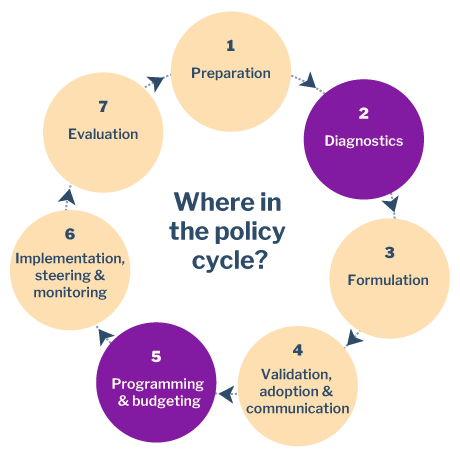Nudging technique: Reframing
Also: Transform expectations of women and inspire girls, transform expectations of men

“Double burden” refers to the workload of women who both earn money and are expected to do the majority of domestic household work. The double burden makes it hard for women to combine a full-time job with family care. Sometimes women decide to stop working completely after having children. Women are also more likely to apply for a flexible job as it enables them to find a better balance between family and work tasks. The attractiveness of flexible working hours to women was also seen in a National Program of Employment by the hour in Honduras. In 2010 a temporary employment program was created that hired some workers on an hourly basis, whereas normally these hours would have formed full-time posts. The program was intended to include more youth and unemployed people in the workforce, however it also boosted employment rates for women.
This solution reframes work as a contribution that women (as well as youth and underemployed people) can make with dignity and self-respect. The same work is accomplished, but the conditions of doing the work have been redesigned to address the challenges to employment those demographic groups face. Employees who don’t have scheduling constraints are still able to work full-time, in the same system. This opportunity provides a more diverse group of applicants for these jobs, and ultimately helps to achieve greater workplace diversity.
Where in the policy cycle can this approach be used?

Potential for change
While the program is designed to benefit younger and un/underemployed workers, it will likely have the greatest gender benefits in cultures where women’s “double burden” is still quite strong, as they have a greater need for flexibility than countries where mothers and fathers are expected to share household and family responsibilities. The nudge here is reframing the idea of work from something that has to be full-time, to something that offers flexibility and balance to workers.
Sources
Goulding Kristine (2013) p.21 of Gender Dimensions of national employment policies: A 24 country study ![]() . Working Paper No. 152, International Labour Office, Employment Policy Department.
. Working Paper No. 152, International Labour Office, Employment Policy Department.